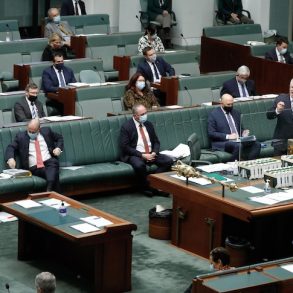RMIT University is considering a new student conduct policy that could force students to undergo psychological assessment if there is reason to believe their state of health prevents satisfactory academic progress
The newly devised Fitness for Study Panel is authorised to request a report from a medical practitioner, and can require a student “to undergo one or more medical examinations or psychological assessments”
Steve Boucher, a student rights officer for the RMIT University Student Union, is concerned about the difference between the way the traditional student conduct board works and the way the proposed Fitness for Study Panel will operate
Mr Boucher says if a student is brought before a conduct board, they are informed of their rights
Students are also presented with the evidence against them, and have the option to be represented or appeal the decision
“It is unclear if you have the right to representation,” he says in relation to the draft policy
“If you are talking about students who have a mental illness then the issue of representation is critical
” Fiona Ellis, Director of Student Services, assured Catalyst that the proposed Fitness for Study Panel would inform students of their rights
In addition, copies of evidence will be made available and the student may bring someone with them for support
The draft policy also gives an assigned Safety Team the power to manage concerns if a student displays threatening behaviour
Mr Boucher said the Student Union has questions about the policy
“Our concerns are civil rights concerns,” he says
“When you start talking about monitoring people behind the scenes, you start having real issues about privacy and their right to go about their business without people forming judgements about them
” RMIT no longer publishes the template used by risk assessment teams to decide whether or not a student is a security threat
However a much earlier version obtained by Catalyst listed raising one’s voice and “threats of legal action” as potential hazardous behaviours
Other factors included “possible mental illness” and if the student was not acting rationally
Mr Boucher admits that from time to time there are people who can be threatening or stressful to deal with
However, he says the rights of the individual need to be balanced with the rights of the greater RMIT community
If this is not the case, then things can become “problematic” and “a bit secret-police like”
He also says the Student Union is concerned the draft student conduct policy could potentially stigmatise mental illness
“One of our worries is that it has this tendency to act as a self-attending prophecy
If a student is considered a danger, then it starts planting the idea that that person is
It creates this sort of bridge between the student and institution that wasn’t there previously,” he said
Mr Boucher says finding out whether or not a student is a threat is very complex and problematic
“Whether someone is a risk depends on your methodology and tolerance,” he says
However, Ms Ellis has a very different view
“This is absolutely not about discriminating against people,” she says
“This new policy is less about discipline and more about conduct
We want students to not just feel safe, but be safe
” Ms Ellis says the University doesn’t do students any favours by letting individuals get away with inappropriate behaviour
“Part of your academic literacy is understanding important lessons and taking them to your career,” she says
In this regard the draft conduct policy is about making students work-ready
If a person racially vilifies someone in the workplace then they will quickly lose their job
Similarly, such behaviour is unacceptable in a university environment
Ms Ellis stresses that sometimes when people behave badly “it is not because they are consciously doing it”
Ms Ellis says the proposed policy update will allow for an educational approach
She says it is important the University shifts away from something that is punishment-focused
The new student conduct procedures will, in this regard, reflect RMIT’s values
The draft policy has gone through multiple consultations with senior staff and directors of non-academic areas
The University has also met with the Student Union to allow for concerns to be raised
“All will be listened to carefully,” she says
Ms Ellis says consultations are ongoing and the policy will only be implemented when it is “workable” and something everyone is “broadly comfortable” with
Broede Carmody








